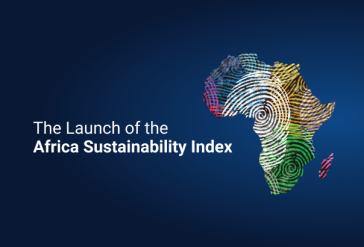Understanding the unique challenges of Africa’s healthcare landscape – before and after COVID-19
The COVID-19 pandemic has brought into focus the unique challenges and limitations that continue to degrade Africa’s medical landscape. Understanding the continent’s demographics and distinct needs, the accessibility issues and an increasing demand for healthcare is vital in redefining Africa’s journey towards a sustainable healthcare system as we attempt to move through the pandemic.
From a global perspective, Africans – and similarly those living in much of the developing world – are faced with a context that contrasts greatly with, for example, Europe.
- Europe’s current population according to the latest UN estimates is approximately 747 million people, with a population density of 45 people per square kilometre. The median age in Europe is 42.5 years. In Europe, 74.5 percent of the population is urban.
- Africa’s current population is 1.3 billion, with a population density of 45 people per square kilometre. The median age in Africa is 19.7 years. In Africa, 43.8 percent of the population is urban.
This immediately recalls two fundamental challenges that governments across the continent must address:
Limited Accessibility
Africa carries the world's largest burden of disease and experiences the most severe shortage of healthcare workers. Across the continent, accessibility to primary healthcare is one of the greatest challenges. A possible solution is the implementation of universal healthcare, such as the recent establishment of the National Health Insurance in Ghana. This has provided access to treatment for more common ailments to the entire nation, and simple tests and systems have been made more readily available. However, with limited health advocacy groups to push for further development of the NHI and more advanced treatment, such as chemotherapy or kidney dialysis, access still remains limited.
The right to universal health coverage means that all people, regardless of where they live, have an inherent right to adequate and reliable healthcare provisions. This should include access to healthcare providers, access to essential medicines, and access to preventative intervention and treatment services. In most African countries, professional healthcare services are concentrated in urban areas, leaving those living in rural areas (56.2 percent of Africa’s population) unable to access even the most basic levels of preventative healthcare.
Throughout the pandemic, some countries – take South Africa, for example – have struggled with the financial and logistical costs of testing and tracing, and inaccessibility to treatment for those living in rural areas has once again been highlighted.
Demographic challenges
Africa is currently experiencing the world’s highest rate of urbanization with roughly 65 million additional urban residents per year. Many of those moving to the cities live in informal housing, where access to clean water and sanitation is limited. The consequences of this when it comes to curbing the spread of COVID-19 and other diseases, are clear.
Sub-Saharan Africa is home to more than 17 million internationally displaced persons according to the United Nations Refugee Agency. These displaced people are more likely to live in close quarters and in conditions with poor sanitation and hygiene, and have very little access to healthcare, particularly preventative primary care. In these environments, communicable diseases spread quickly as physical distancing is near impossible. Once again, the pandemic has furthered these divisions between the privileged and those in poverty, exacerbating the need for immediate intervention.
Potential solutions
Firstly, economic investment in healthcare workers and infrastructure can help build a more resilient medical landscape, one that is ready to withstand future healthcare challenges, such as what we have been experiencing for the past year.
However, it is in human development, education and improved governance that we can continue to build the healthcare systems across the continent even beyond the pandemic. If we can give every person on the continent a certain minimum level of education, they can become the catalyst for developing our systems.
Medical workers are also in need of training to address the continent’s general shortage of highly-skilled experts, and international collaborations could help bring knowledge from outside the continent as well as allow us to share our own developments and perspectives.
Healthcare needs to be seen as an investment rather than being seen as solely a financial and environmental resource. Health, wealth and societal wellbeing can all be improved by investing in healthcare with a future focus and improve entire economies. Leadership needs to renew conversation with the sector and reassess the role of health systems in society. By addressing the healthcare sector’s needs, we are enabling healthcare and innovation not just for the present but the inevitable future that will require it.
Strengthening Africa’s healthcare systems needs to be more than just rebuilding post-pandemic. It is about building new systems that will ensure functionality and sustainability into the future.
Watch the launch of the Africa Sustainability Index below:












